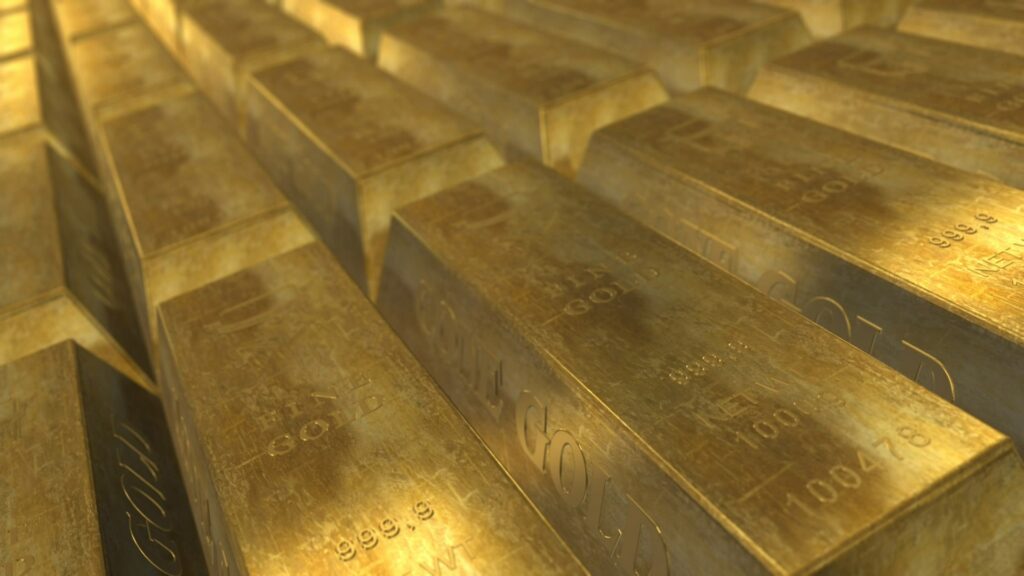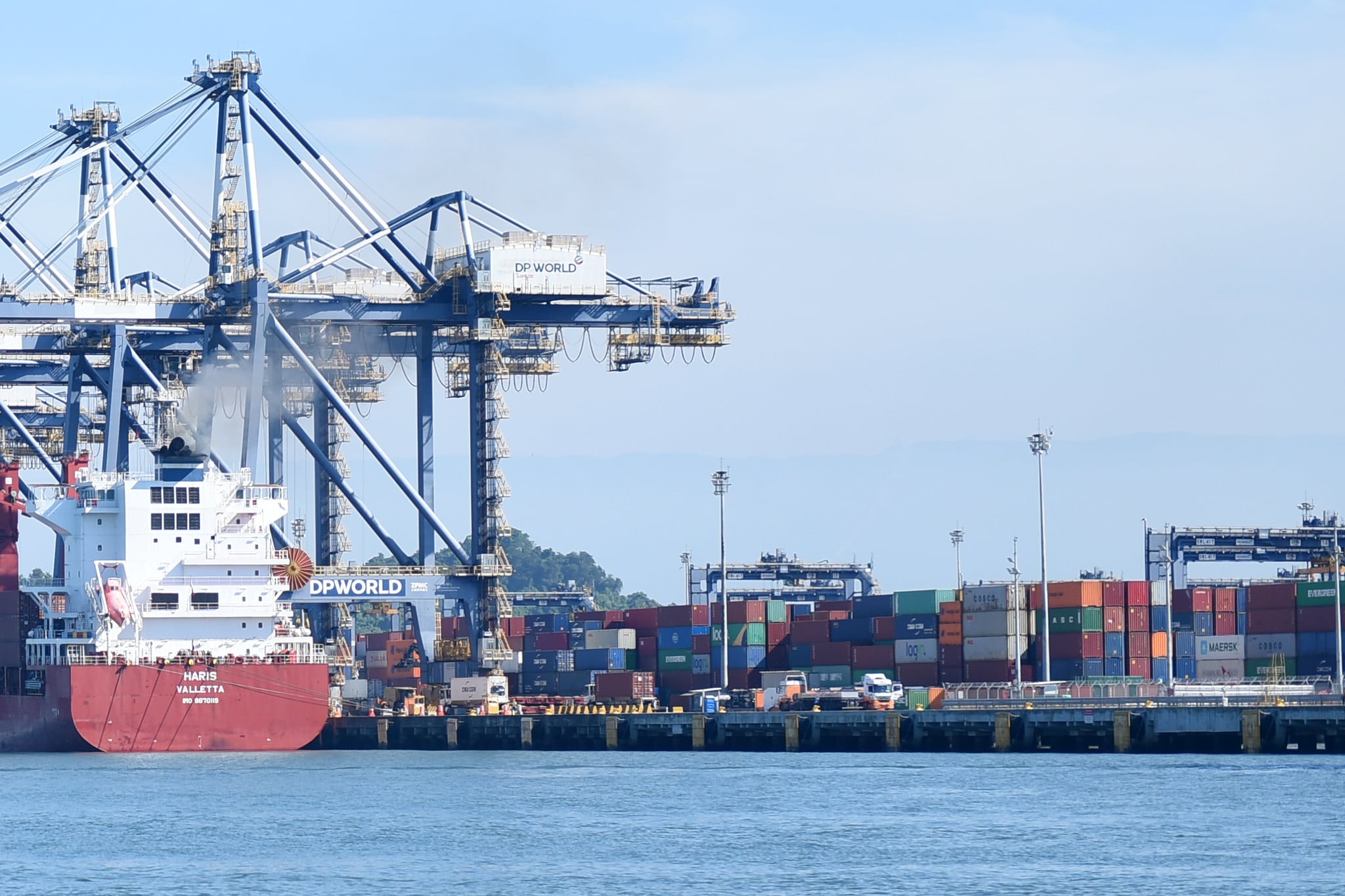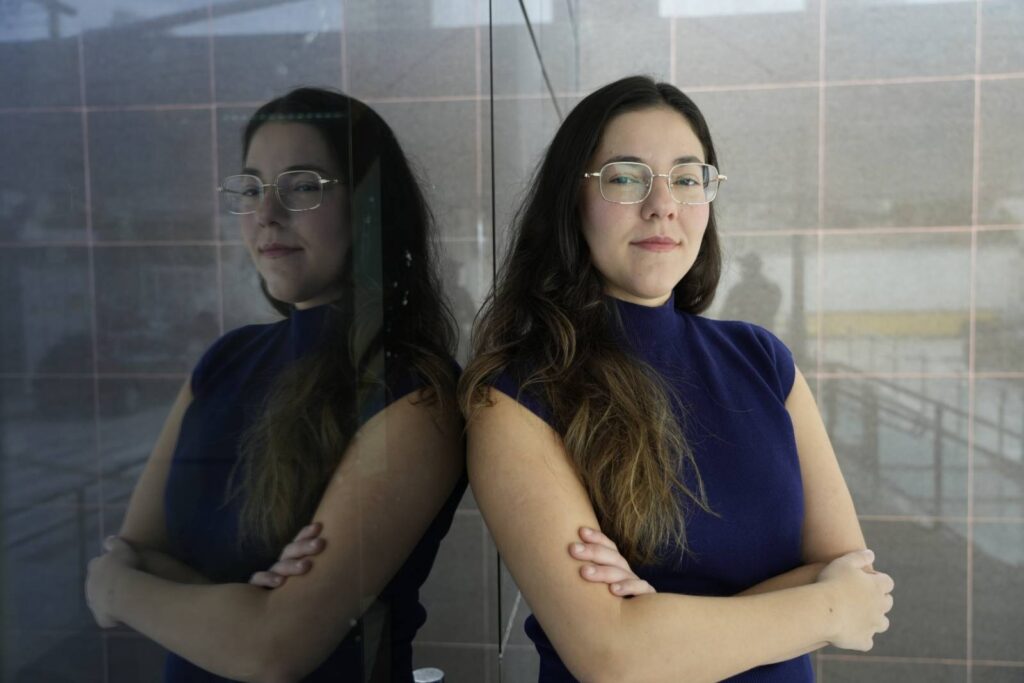A SHIPMENT OF 15 TONS of activated charcoal has been detained at the Port of Santos in Brazil since September of last year when Federal Revenue inspectors identified the equivalent of 5 kilograms of undeclared powdered gold mixed with the material. Despite representing only 0.03% of the total volume of the shipment, the value of the gold could amount to BRL 1.9 million (USD 370,000), nearly three times the declared value of the charcoal as stated in the invoice accessed by Repórter Brasil. The shipment was destined for the Italian company Safimet, which specialized in refining gold and other precious metals. Safimet supplies major technology companies worldwide, including Amazon, Microsoft, Google, and Tesla, as gold filaments are used in components of cell phones, computers, and cars.
According to the Federal Revenue, this marked the first seizure of gold mixed with activated charcoal at the Port of Santos. The seizure occurred two months after the enforcement of a Normative Instruction requiring the issuance of electronic invoices for gold trade, aimed at combating illegal mining of the product. Before this regulation, only a handwritten form with a self-declaration of the gold’s origin was required for the metal’s commercialization in Brazil.
The company fined for attempting to export the undeclared gold is Omex Comércio e Exportação de Metais Preciosos S/A, headquartered in São Paulo. In response to auditors’ summons from the Federal Revenue five days after the shipment’s detention, Omex admitted that Safimet expected to extract “the residue of precious metals that may exist” from the activated charcoal.
Commenting on the situation, Christian Poirier, program director of the organization Amazon Watch, investigating the impacts of illegal gold mining, remarked, “Certainly they [Safimet] have explanations to give about their connection to a company willing to conceal the nature of its exports.” He refers to the reason presented by the Federal Revenue for the seizure of the shipment.
Omex informed Repórter Brasil that it is awaiting the resolution of the process to conclude the commercialization of the shipment. When asked about the origin of the seized gold, the company stated that it acts “on behalf of its clients”. It also declared that its role is only to perform compliance checks and documentary verification necessary for export. According to Omex, the Italian refinery imports activated charcoal from other countries in Latin America, such as Peru and Chile. The seized shipment at the Port of Santos would be the first export between the two companies.
In response to Repórter Brasil, Safimet stated that it contacted Omex in 2023 “for a single ‘temporary importation’ (and not a direct purchase) of a batch of charcoal containing gold.” The refinery informed that it acquires waste and residues from customers to refine precious metals contained in them. The Italian company also said that it is unaware of the reasons that led to the seizure of the shipment but emphasized that it is no longer interested in the business even if the authorities release it. For further details, read the full responses from the companies here.
The big techs were also questioned by Repórter Brasil about their control mechanisms to ensure that supplier companies are not involved in illegal activities. Microsoft stated that it requires its suppliers to follow the company’s Code of Conduct. Google gave a similar response, adding that its suppliers must seek minerals “only from certified and conflict-free companies”. Amazon did not comment on the case, and Tesla did not respond to Repórter Brasil’s attempts to contact them.
The exporter is not usually involved in this particular industry
Customs agents took notice of the shipment because activated charcoal was being sold by a company that isn’t typically part of this industry. Omex promotes itself as specializing in the exploration of precious minerals.
Omex explained to the Federal Revenue that it bought the activated charcoal from a mining company, which had used the product in extracting precious metals.
The Export Declaration completed by Omex did not acknowledge the potential presence of other mineral elements resulting from the processing of activated charcoal—a requirement, according to Revenue, for clearing cargoes of this nature. Technical projections estimated that there was a total of 5 kilograms of gold in the 15-ton shipment. “The escape of Au [gold symbol] abroad by the exporter was evidenced, as well as preventing its traceability,” says the infraction ticket applied to Omex.
Between 2018 and 2022, Omex exported BRL 5.4 billion (USD 1 billion) in shipments – most of them were gold bars destined for clients in Europe, according to investigation documents from the Federal Revenue accessed by Repórter Brasil.
Gold Laundering
This isn’t the first time Omex has had a shipment seized. In June 2023, Customs at Guarulhos Airport intercepted two gold shipments bound for the United Arab Emirates.
The Federal Revenue investigations poin out that Omex failed to substantiate the legality of the gold and resorted to falsified documents to simulate the metal’s origin. According to investigators, a sophisticated scheme was formed involving the issuance of fraudulent purchase invoices for jewelry through dummy shell companies. These invoices were issued in the names of individuals, some of whom were beneficiaries of Brazil’s Emergency Aid and even deceased people.

The main aim of this scam, as described by the agency, was to create the illusion that the goods being sold originated from jewelry recycling instead of mining. Such endeavors usually require documentation, such as a mining permit or an environmental license.
Roselito Soares, a former mayor of Itaituba in Pará (Brazil), the nation’s largest mining center, stands among Omex’s administrators and shareholders.
Responding to Repórter Brasil, Omex asserted that “all its commercial transactions are conducted in full compliance with the law.” The company acknowledged that the case is undergoing legal proceedings, and it intends to address relevant issues throughout the process. Read the full responses here.
Italian Gold
In 2022, Safimet informed the Dutch non-governmental organization Profundo that it does not purchase gold originating from Brazil. However, the company didn’t specify when this policy was implemented.
Documents from 2018 accessed by Repórter Brasil reveal Safimet’s previous gold purchases originating from Pará, Brazil. In May of that year, Safimet’s Brazilian subsidiary – called Safimet do Brasil – purchased 24 kg of gold bars from the Cooperativa dos Garimpeiros Mineradores e Produtores de Ouro do Tajapós (COOPOROU), paying BRL 2.8 million (USD 540,000) for the metal. This transaction was discovered after part of the gold shipment was stolen from the house of Safimet do Brasil’s representative in Itaituba. These invoices are mentioned in the ongoing legal proceedings related to the case.
Safimet’s headquarters is in Arezzo, Italy, close to Florence. Less than 6 km away lies Chimet, a refinery under investigation by Brazil’s Federal Police for allegedly procuring illegally extracted gold from the Kayapó Indigenous Land in southern Pará, as reported by Repórter Brasil.
According to Brazil’s Ministry of Industry, Foreign Trade, and Services, in 2023, Italy ranked as the 9th largest purchaser of gold exported by the country.


